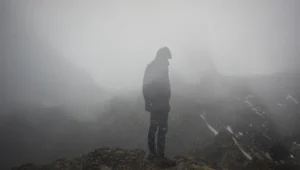
Sleep apnea can overall lower your quality of sleep and cause disruptions throughout the night. When drinking before bed, be mindful of the potential to develop symptoms of insomnia. Excessive sleepiness during the day caused by insomnia can lead you into a routine that uses alcohol to induce sleepiness at night and overuses stimulants such as coffee and caffeinated soda throughout the day to stay awake. This can become a habit that can create an unhealthy reliance on alcohol. While this may work for a short time, typically, more alcohol is needed to accomplish this over time. This practice can mask an underlying sleep disorder such as obstructive sleep apnea which may be causing the insomnia in the first place.
Will a small amount of alcohol affect my sleep?
- As a result, they may consume alcohol to speed up falling asleep, but evidence shows this technique does not improve sleep quality.
- Treatment providers are available 24/7 to answer your questions about rehab, whether it’s for you or a loved one.
- It is, therefore,plausible, that alcohol could influence this REM-off process through its effects on GABA,leading to the suppression of REM sleep in the short-term.
- Older men who consume alcohol are more likely to have a worse sleep profile, characterized by waking tired and waking several times during the night.
- In short, it’s mainly due to your body rebalancing itself after stopping a substance.
If you’re finding that alcohol may in fact be the culprit behind your restless sleep—or you’re realizing you’re consuming more than you’d like to overall—there are some steps you can take to cut down your consumption levels and get your sleep back on track. Alcohol can cause the muscles in your throat to relax, which creates more resistance when breathing. This can worsen sleep apnea symptoms by causing your airway to be more likely to collapse while sleeping. As you work toward quitting, you can try adjusting your drinking around your sleep for less severe impact on your sleep patterns. Most of us probably think that unless someone has alcohol dependency or drinks heavily, they’re out of alcohol’s negative reach. Lindsay Modglin is a nurse and professional writer who regularly writes about complex medical topics, as well as travel and the great outdoors.
- This article discusses the science behind why alcohol makes you sleepy, how to minimize drowsiness while drinking, and the broader effects alcohol has on your sleep and overall health.
- When people struggle with sleep, they rarely consider alcohol as the culprit.
- As a central nervous system (CNS) depressant, alcohol has a sedative effect that may cause you to fall asleep more quickly than usual.
- Furthermore, long-term consequences of alcohol may lead to changes in sleep regulation.
How does alcohol affect people with insomnia?
- Although there’s no evidence that alcohol can cause narcolepsy (sleepwalking), it does disrupt REM sleep, which may make the onset of sleepwalking more likely.
- “Although some encouraging results have been seen with gabapentin, quetiapine and CBT-I, these findings need to be replicated using adequately powered studies in individuals with insomnia comorbid with alcohol dependence”.
- Your health and wellness is unique to you, and the products and services we review may not be right for your circumstances.
- So, does alcohol help you sleep or is it actually interfering with your quality of rest?
- The diuretic effects of alcohol increase as your blood alcohol concentration rises, meaning the more you drink, the more you’ll wake up at night to pee.
The suprachiasmatic nucleus within the hypothalamus in the brain is the master clock that synchronizes a host of internal rhythms with the sleep-wake cycle being one of them. Light is the primary stimulus involved in synchronizing an organism’s internal rhythm in the circadian clock with the external environment. In addition to light, other cues such as physical activity or feeding are considered as non-photic cues that can be used to reset the circadian clock. Non-photic phase-resetting is the process of shifting and/or synchronizing the circadian clock using non-photic stimulus. The circadian clock may modulate sleep-wake cycle with the help of melatonin.

Other Negative Effects of Alcohol on Your Sleep
Of these 6,318 men and women, 6117 (96.8%) had data on alcohol and sleep. Men consumed more alcohol than women with 15.7% consuming 21 or more units per week compared to only 2.4% of women (Table 1). 30.5% men and 12.8% women scored more than 5 on the AUDIT score, indicating hazardous drinking. In summary, insomnia is prevalent across all stages of AD and may have psychosocial, addiction and psychiatric ramifications.

Chronic Pain and High Blood Pressure
Acute insomnia is triggered in them by stress promoting events (precipitating factors). This acute insomnia becomes persistent because of perpetuating factors such as reading in bed (Spielman et al., 1987) or drinking alcohol. However, while alcohol may hasten the sandman, it https://ecosoberhouse.com/ can negatively impact sleep quality. Drinking alcohol (from one to six standard drinks) around 30 to 60 minutes before bedtime means that alcohol levels in the breath and blood peak around lights-out time, according to the National Institute on Alcohol Abuse and Alcoholism.
The effects of alcohol on these neurotransmitters is sedative, which is why alcohol initially makes you relaxed and drowsy and may help you fall asleep more easily. Insomnia is a common sleep disorder that causes difficulty falling or staying asleep. Due to the lack of uninterrupted sleep you can experience overnight, you are more prone to feeling excessively tired throughout the next day. Statistics show that 5.3 percent of all people 12 and older in the U.S. have an alcohol use disorder.12 And many others might deal with problematic drinking, but fall into the gray area.
Does Warm Milk Help You Sleep?
Effects of an acute pre-bedtime dose of alcohol on sleep have been extensivelystudied although methodology has varied greatly between studies in terms of dose and timingof alcohol administration, age and gender of subjects, and sample size. In the second half of thenight, sleep is disrupted, with increased wakefulness and/or stage 1 sleep. It is estimated thatalcohol is used by more than one in ten individuals as a hypnotic agent to self-medicatesleep problems (Arnedt, 2007). At this time when poly-substance dependence iscommon, it also is becoming increasingly relevant to investigate the interactive effects ofsubstances of abuse on sleep behavior and regulation.

Kirk J. Brower

When she returns to complete her doctorate, Armstrong hopes to continue studying the intersection of mental health and addiction, she said. Understanding these complex relationships can help parents, mentors and health care providers better treat teens. OXFORD, Miss. – To help prevent alcohol use in adolescence, parents may want to pay attention to their teenager’s sleep schedule, according to a recent alcohol insomnia study from University of Mississippi researchers. Benzodiazepines and non-benzodiazepines are types of prescription drugs that may be prescribed for insomnia. In general, non-benzodiazepine sedative drugs should be used in place of benzodiazepines, which can be addictive. Someone looking for treatment for their Insomnia, without taking their alcohol use into consideration, could make the problem worse.
Triggers Sleep Talking and Sleepwalking
- And we quickly build a tolerance for the sedative effects of alcohol, which means you may need to drink more to have the same initial sleep-inducing effects.
- Even if it doesn’t present as a full-fledged hangover, alcohol-related sleep loss negatively affects mood and performance.
- Alcohol can trigger parasomnias, involuntary sleep behaviors that contribute to poor sleep quality, such as sleep talking and sleepwalking.
- Many who abuse alcohol often do it well into the night and oversleep into the next day.
- The model originally developed by McCarleyand Hobson (1975) proposed a set of reciprocal interactions between the two groupsof neurons whereby REM-on neurons are influenced by a self-excitatory loop but also have anexcitatory link to REM-off neurons.
Further, alcohol may continue to disturb sleep even after the breath alcohol concentration is undetectable. In a 2011 study published in the journal Alcoholism, Clinical and Experimental Research, men and women consumed the same amount of alcohol before going to bed. Although the results were self-reported, women said they felt more tired before bed, experienced more nighttime awakenings and recorded less sleep than their male counterparts. People suffering from depression may already have disrupted circadian rhythms, and the presence of even moderate amounts of alcohol may push those rhythms further out of sync. The liver acts as a filtering system for the body, helping metabolize food and chemicals (including alcohol itself), and pulling toxins from the bloodstream. Like nearly all of the body’s organs, the liver functions according to circadian rhythms.
